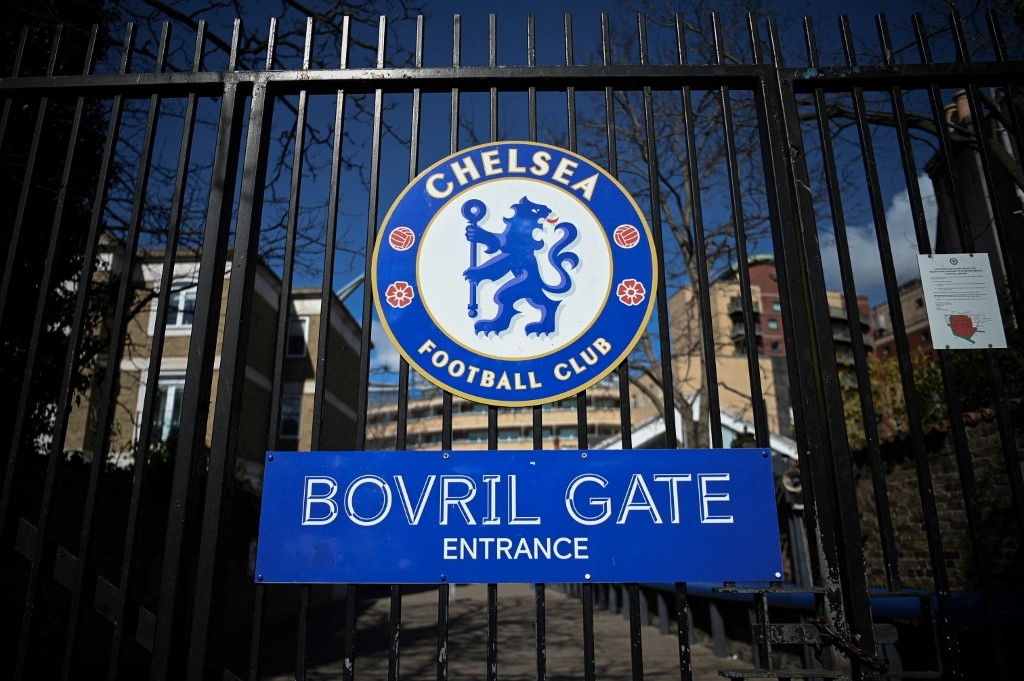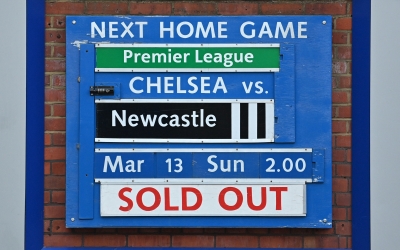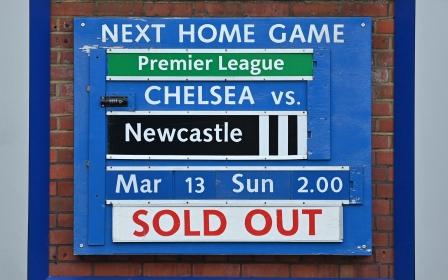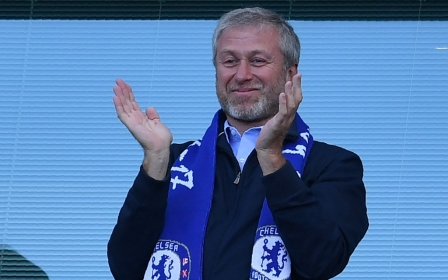Ricketts family denounces Islamophobia after Chelsea fan backlash

The Ricketts family have denounced Islamophobia and racism after a backlash by Chelsea supporters threatened to derail their bid to buy the Premier League club.
Chelsea fans had the hashtag #NoToRicketts trending on Twitter on Wednesday, with supporters raising concerns over the potential purchase by the owners of the Chicago Cubs.
In 2019, Splinter News published a string of emails in which family patriarch Joe Ricketts purportedly said "Islam is a cult and not a religion". He apologised for the comments three years ago.
In a bid to prove their suitability to take over Chelsea, the family released a statement saying they rejected "any form of hate in the strongest possible terms".
"Racism and Islamophobia have no place whatsoever in our society," they added.
New MEE newsletter: Jerusalem Dispatch
Sign up to get the latest insights and analysis on Israel-Palestine, alongside Turkey Unpacked and other MEE newsletters
"We have developed deep and abiding partnerships with the Muslim community in Chicago, as well as with all communities of colour," the statement said.
"If we prevail in our bid for Chelsea, we commit to the club and to the fans that we will actively promote these values."
Chelsea, which has several Muslim players in its squad, is up for sale after its current owner, Russian oligarch Roman Abramovich, was hit with sanctions by the British government earlier this month.
Abramovich, who is thought to be close to Russian President Vladimir Putin, is reportedly seeking to offload his UK-based assets in light of the ongoing Russian invasion of Ukraine.
Fears are mounting that Chelsea could collapse into administration if a sale is not agreed soon, as sanctions are preventing the club from collecting match-day income and sponsors have terminated contracts.
The club has been granted a special licence to allow it to continue to play matches for the rest of the season - but only season ticket holders and fans who have already bought tickets will be able to attend matches.
According to media reports, there are at least seven known bidders for Chelsea, but the UK government will have to approve a licence for the buyout.
One of the frontrunners includes the Saudi media group - which reportedly made a £2.7bn ($3.6bn) offer for the club earlier this week.
On Wednesday, Human Rights Watch urged the Premier League to block any Saudi-linked move for the club, warning they risked becoming an "accomplice" in the kingdom's efforts to whitewash its human rights abuses.
The successful purchasers of the club must also pass the Premier League’s final checks before a takeover can be completed.
"Allowing Newcastle United to be sold to a business consortium led by Saudi Arabia's sovereign wealth fund, an institution chaired by a state leader linked to human rights abuses, has exposed the farcical inadequacies of the Premier League’s Owners' and Directors' Test," said Yasmine Ahmed, UK advocacy director at Human Rights Watch.
"As another consortium with Saudi government links eyes acquiring Chelsea, the Premier League should move fast to protect the league and its clubs from being a fast-track option for dictators and kleptocrats to whitewash their reputations."
Speaking at the the Digital, Culture, Media and Sport (DCMS) select committee last week, Helen MacNamara, the Premier League's chief policy and corporate affairs officer, said the league intended to change its test "as soon as we can", although it was unsure whether the changes would be made in time to oversee the Chelsea sale.
She also said the Premier League had been working with human rights groups in order to "align with international best practice".
Middle East Eye delivers independent and unrivalled coverage and analysis of the Middle East, North Africa and beyond. To learn more about republishing this content and the associated fees, please fill out this form. More about MEE can be found here.




